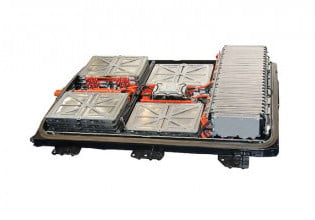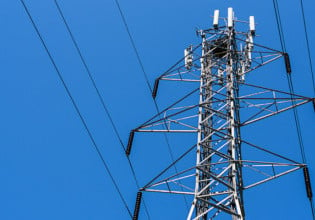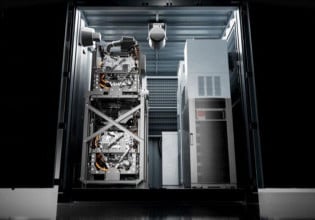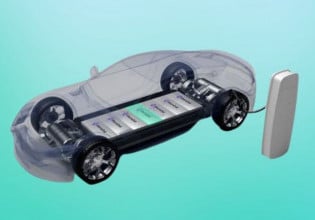Altera Corporation is adding a 30-A PowerSoC dc-dc step-down converter to its growing portfolio of Enpirion power solutions for FPGAs. The 30-A EM1130 is the first in a family of integrated digital dc-dc step-down converters that will provide power management for Altera's Generation 10 FPGAs, specifically for Arria® 10 and Stratix® 10 FPGA core and transceiver power supply rails. The result of the successful acquisition of the Enpirion, Inc. by Altera in 2013, the EM1130 digital power management device represents a major milestone in Altera's endeavor to bring unprecedented optimized power solutions to the programmable logic market.
"With this innovation, we will provide integrated power management for our high-end portfolio," said Jeff Waters, senior vice president and general manager, Altera Business Units. "We are pleased with the progress we've seen in the 18 months following the acquisition of Enpirion, and we expect our customers to continue to benefit from the tight coupling of power and industry-leading FPGA platforms."
The EM1130 claims the industry's most dense footprint, and offers high, tight output regulation, and fast transient response. These features enable FPGA-based systems to meet the most stringent performance, power budget, and solution size requirements. PMBus provides the interface for Altera SmartVID™ technology which allows the converter to provide the Arria 10 and Stratix 10 FPGAs with a lower voltage (VCC) for significant power savings while maintaining the performance of the specific device speed grade. Additionally, the PMBus interface allows the EM1130 to communicate with the system to provide telemetry—measurement of key parameters such as current, voltage and temperature.
The EM1130 delivers significant benefits including: 50% smaller than other modules in its grade, with a 2-4% efficiency point improvement enabling customers to increase their system performance; A 30 to 50% improvement in telemetry accuracy (current and voltage measurement) allowing customers to extend the performance range of their systems; Adaptive control technology that reduces external compensation components and adjusts automatically to provide a robust solution regardless of changing operating conditions; and Easy-to-use graphical user interface (GUI) that simplifies programming so design engineers have a fast path to an optimized solution.
"System architects and designers need to plan for power use earlier for performance-driven applications in order to be able to achieve maximum system performance, while reducing energy consumption and thermal loads. When this is accomplished, the cost of ownership is dramatically reduced not only for Altera's customers, but also for our customers' end users," said Mark Davidson, general manager of Altera's Power Business unit. "As a building block for a more intelligent system, the EM1130 architecture allows communication between the FPGA, the system power supply, and the rest of the customer's application providing the most flexible configuration, that can speed time-to-market with lower risk."






